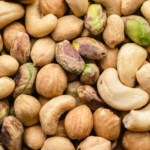
In recent years, the global conversation around food security has increasingly turned toward Africa. With its vast land resources, diverse climates, and growing population, the continent is becoming central to global agricultural strategies. As the world grapples with the challenges of climate change, population growth, and supply chain disruptions, African agriculture is playing a pivotal role in shaping food systems and sustaining global food security.
This blog explores how African Agriculture and Food Security Are Shaping the World’s Future. We’ll look at key developments, challenges, and the enormous potential that African farmers and agricultural ecosystems hold.
Africa’s Agricultural Potential
Africa is home to around 60% of the world’s uncultivated arable land. This alone presents a massive opportunity for increasing agricultural production to meet not only local demand but also international needs. In addition to land, the continent is rich in biodiversity, enabling the growth of a wide range of crops—from staples like maize, rice, and millet to export-driven commodities like cocoa, cashews, and sesame seeds.
The push to harness this potential is not just about economic growth—it’s directly tied to African Agriculture and Food Security. As more land is cultivated and technology is introduced, food production is expected to increase, helping to reduce hunger and malnutrition in regions that still face chronic food shortages.
Africa’s Role in the Global Food Supply Chain
African nations are becoming increasingly important exporters of key agricultural products. Countries like Nigeria, Ethiopia, Kenya, and Ghana are growing producers of grains, fruits, and high-value crops. On the export side, African countries supply large quantities of cocoa, tea, coffee, and oilseeds to markets across Europe, the Middle East, and Asia.
This integration into the global supply chain has ripple effects. As African farmers produce more, they not only help meet the nutritional needs of their own populations but also contribute to global stability in food prices and availability. This interconnectedness underscores the critical link between African Agriculture and Food Security worldwide.
The Link Between Agriculture and Local Food Security
While Africa’s agricultural exports are growing, the continent still faces internal challenges. Many African nations rely heavily on food imports to feed their populations, especially in urban centers. This reliance makes them vulnerable to price spikes and supply disruptions in international markets.
To improve food security, there’s a need to strike a balance between producing for export and ensuring domestic food availability. Investing in local food processing, cold storage, and transportation networks can reduce post-harvest losses and make food more accessible within the continent.
Programs that encourage crop diversification, sustainable practices, and soil health are also vital. These measures ensure that smallholder farmers can grow enough to feed their families and communities, thereby strengthening African Agriculture and Food Security from the ground up.
Innovation and Technology Driving Progress
Innovation is a major driver of change in African agriculture. Across the continent, farmers are increasingly using mobile-based platforms to access market prices, weather forecasts, and farming advice. These tools help farmers make informed decisions, reduce risk, and increase yields.
Agritech startups are also bringing precision farming, drone surveillance, and AI-powered analytics to improve productivity. Governments and NGOs are working alongside the private sector to develop irrigation systems, distribute high-yield seed varieties, and provide affordable credit to farmers.
Such developments are helping close the gap between potential and actual output, moving African agriculture closer to being a reliable pillar of food security. It’s these advancements that make the connection between African Agriculture and Food Security more than just theory—it becomes reality.
Challenges Still Persist
Despite all the progress, there are still several barriers that need attention. Access to finance remains limited for many smallholder farmers, who make up over 70% of the agricultural workforce in Africa. Without capital, they struggle to invest in equipment, seeds, and fertilizer needed to improve productivity.
Climate change poses another significant challenge. Erratic rainfall, prolonged droughts, and extreme weather events threaten crop yields and livestock health. Sustainable practices, drought-resistant crop varieties, and community-led climate adaptation plans are essential to mitigating these impacts.
Land ownership and policy inconsistencies also complicate matters. In many regions, farmers work on land without legal titles, limiting their ability to secure loans or make long-term improvements.
Efforts to address these issues must continue alongside initiatives to scale up agricultural production. Only then can African Agriculture and Food Security move forward together.
The Global Perspective
As the world faces increasing food insecurity due to conflicts, pandemics, and climate change, Africa stands out not only as a region in need but also as a region of hope. By strengthening its agricultural systems, Africa has the potential to feed not only its population but also contribute meaningfully to the world’s food needs.
Global stakeholders—from governments to investors and food companies—are recognizing this potential. Foreign direct investments in African agriculture are on the rise. Partnerships with local cooperatives, training programs for farmers, and investments in infrastructure are laying the foundation for a more food-secure future.
The recognition of African Agriculture and Food Security as a global priority is not just timely but essential.
Conclusion
Africa’s agricultural journey is at a critical turning point. With the right mix of investment, innovation, and policy support, the continent can move from being a region of food insecurity to becoming a key player in global food systems.
Supporting local farmers, strengthening value chains, and improving infrastructure can unlock Africa’s full agricultural potential. More importantly, this progress ensures that African Agriculture and Food Security become interwoven elements of a global solution to hunger and instability.
As the world searches for sustainable ways to feed a growing population, all eyes will increasingly turn to Africa—not just as a continent of potential, but as a driving force for the future of food.











Add comment